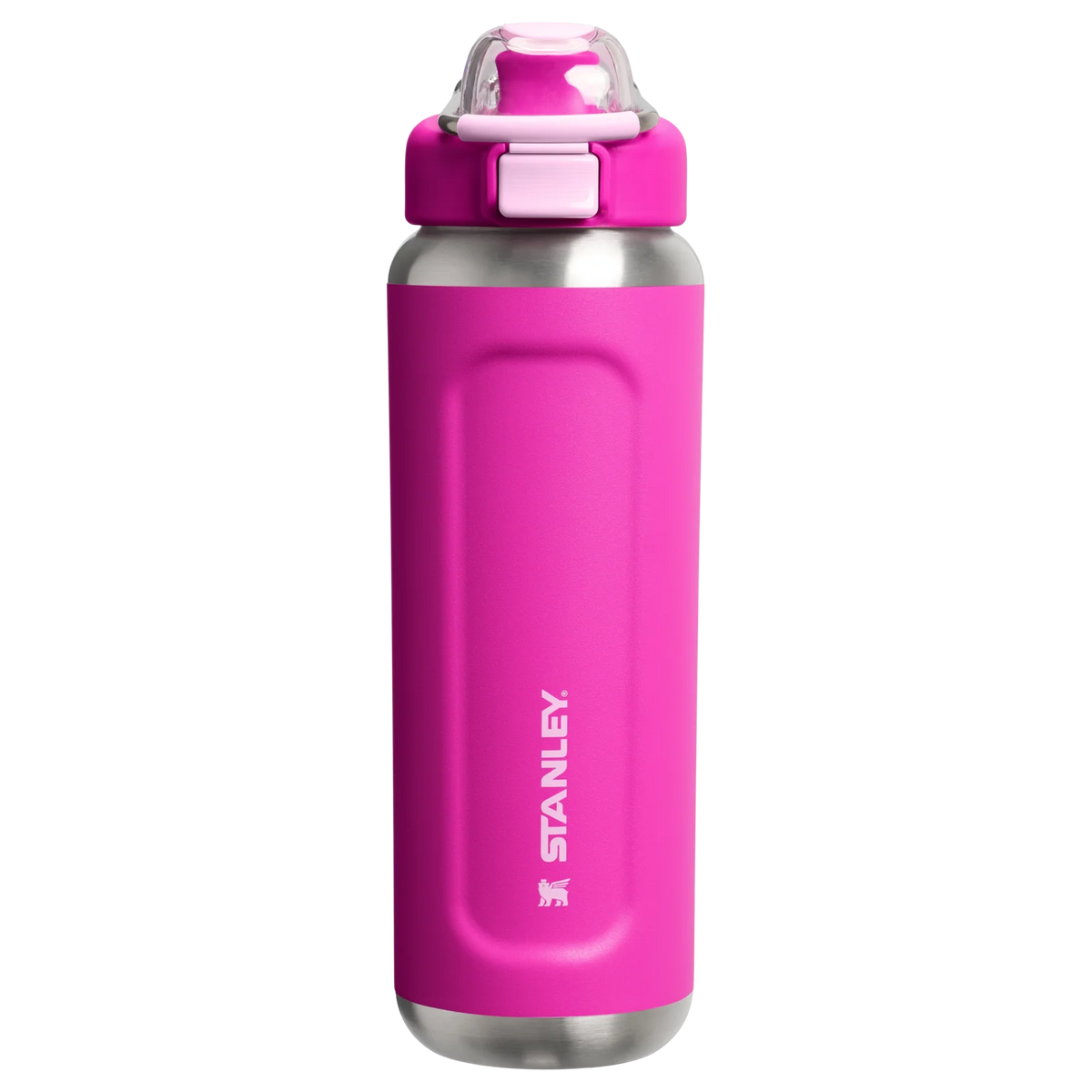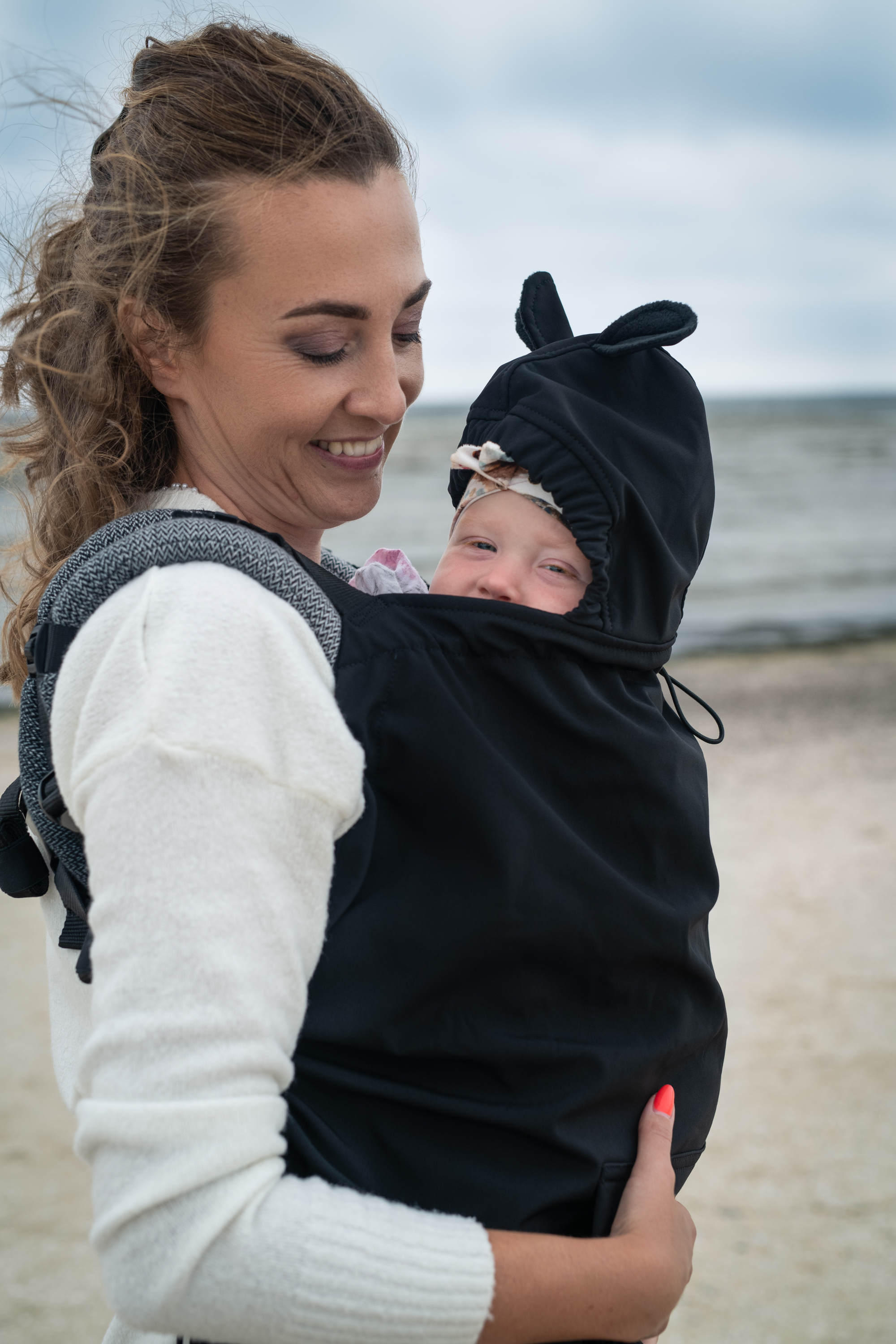The Benefits of Babywearing for Your Baby
Stronger Parent-Baby Bond
Physical closeness helps regulate your baby’s body temperature, heartbeat and breathing, while promoting a sense of safety. This closeness fosters secure attachment, which lays the foundation for emotional wellbeing later in life.
Less Crying, Better Sleep
Research has shown that babies who are carried cry significantly less than those who aren’t. Specially in the Newborn (forth trimester period) One well-known study found that increased carrying can reduce crying and fussing by up to 43% during the day and 51% at night. Babywearing provides gentle movement, warmth, and familiar sounds—similar to what your baby experienced in the womb—helping them settle and sleep more easily.
Supports Physical Development
An ergonomic carrier positions your baby in the healthy “M-shape” that supports their hips and spine. The gentle rocking motion when you walk also stimulates the balance system, which is important for motor development. Over time, this helps build strength in the neck, core and limbs.
Emotional Regulation & Brain Development
When babies are carried, they are calmer and spend more time in a quiet, alert state. This is the optimal state for brain development, as they can engage with their environment, watch your face, and listen to your voice. Babywearing also helps regulate stress hormones, giving babies a sense of safety that supports healthy emotional development.
The Benefits of Babywearing for Parents
Everyday Practicality
Carrying your baby means you can keep your hands free while still staying close. It makes everyday tasks, travelling, or exploring the outdoors much easier, especially compared to managing a pram in tight or uneven spaces. Many families love the simplicity of ring slings for quick carries or preschool carriers for older toddlers
Improved Well-being
Babywearing isn’t just good for your baby—it can also help you. Close contact with your baby encourages oxytocin release, which helps reduce stress, promote bonding, and even support postnatal recovery. Many parents say that babywearing makes them feel calmer and more connected, especially during the early months.
Confidence and Connection
Being able to respond quickly to your baby’s needs while staying mobile can boost your confidence as a parent. It’s reassuring to know that your baby feels safe and content while you continue with your daily life.
Making Babywearing Safe and Comfortable
Babywearing is safe when carriers are used correctly. The T.I.C.K.S. safety guidelines are a simple way to check positioning:
- Tight
- In view at all times
- Close enough to kiss
- Keep chin off chest
- Supported back
Start with shorter carries while you and your baby adjust. As your confidence grows, babywearing often becomes second nature.
Common Misconceptions About Babywearing
Some people worry that babywearing will make a baby clingy, but research shows that babies who have their needs met quickly through closeness often grow into more confident, independent children. Another misconception is that it will be uncomfortable for parents. In reality, modern ergonomic carriers distribute weight evenly, making it comfortable for long periods and often easier than pushing a pram.
Conclusion
Babywearing is about more than convenience—it’s about responding to your baby’s need for closeness in the early months, supporting their development, and making daily life easier for you. From reduced crying and better sleep to bonding and confidence, the benefits are practical, emotional, and long-lasting.
If you’re curious about trying babywearing, there are many types of carriers to explore—from wraps and ring slings to ergonomic structured carriers—so you can find the right fit for you and your family.





